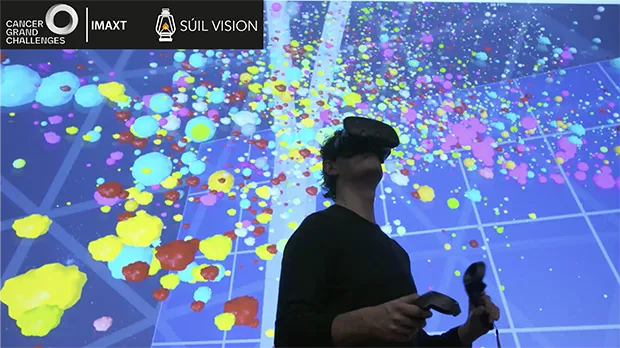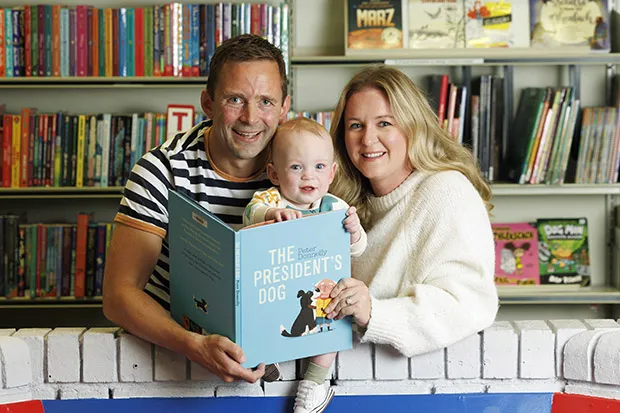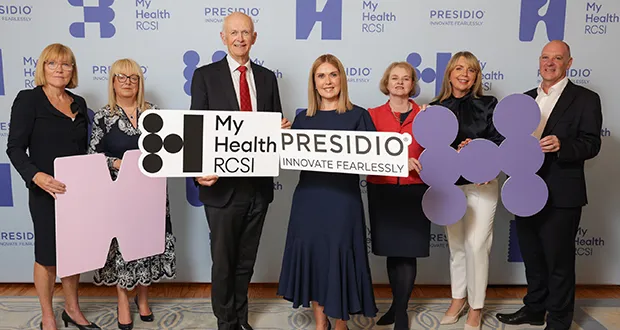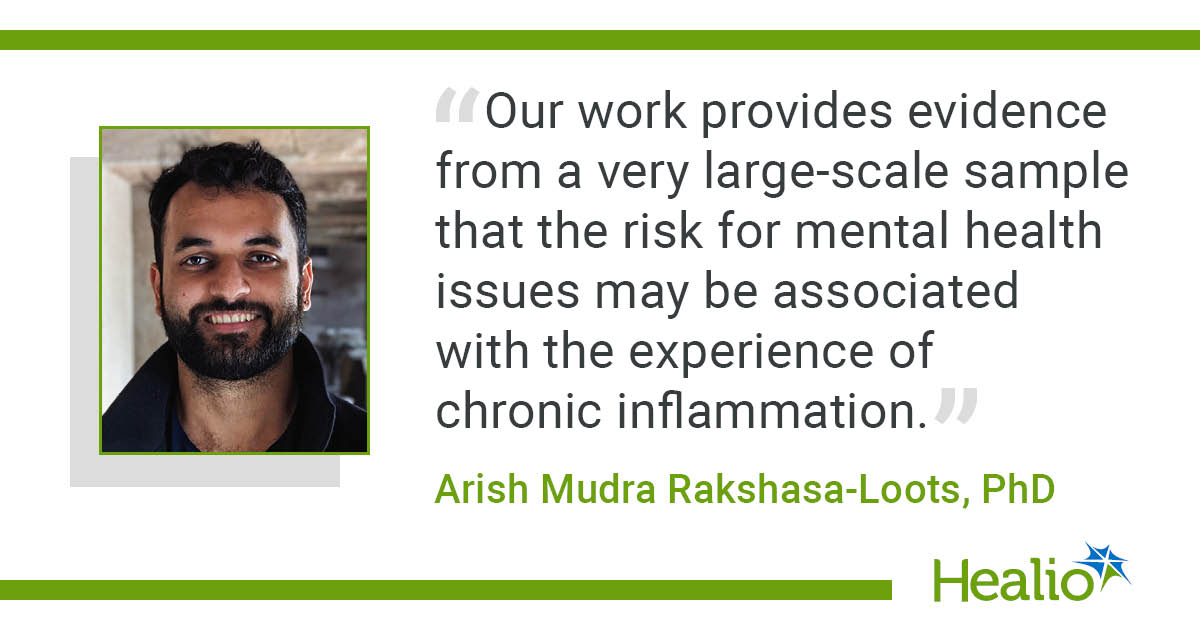Welcome to this week’s issue of The Week in Medicine – a round-up of all the happenings in the world of Irish medicine
The county of Wexford is getting a fresh boost of wellbeing this autumn with the launch of Healthy Living for Everyday Life, a free, community-based programme running from September to December.
Developed by the HSE’s Health Promotion and Improvement team and supported by local partners such as Wexford Library Service, Sports Active Wexford, the Irish Heart Foundation, and Mental Health Ireland, the initiative aims to make health information more accessible—and more practical—for everyday life.

Dr Leslie O’Looney
The programme takes place on Tuesday mornings (10.30am–12pm) across libraries in Bunclody, Enniscorthy, Gorey, New Ross and Wexford Town. Over six weeks, participants can avail of talks covering everything from alcohol awareness and healthy eating, to smoking and vaping, movement tips, cancer risk reduction and even mental wellbeing strategies.
According to Elaine Banville, HSE Health Promotion and Improvement Officer:
“This programme will break down barriers to health information and highlight small, achievable lifestyle changes.”
***************
A large corporation hired several cannibals to increase their diversity. “You’re all part of the team now,” said the human resources director during the welcoming briefing. “You get all the usual benefits and you can go to the cafeteria for something to eat, but please don’t eat any of our employees.”
The cannibals promised they wouldn’t. Four weeks later, their boss remarked: “yYou’re all working very hard and I’m very satisfied with your work. We’ve noticed a marked increase in the whole company’s performance. However, one of our secretaries has disappeared. Do you know what happened to her?”
The cannibals all shook their heads. “No, no, we don’t,” they all replied. After the boss had left, the leader of the cannibals said to the others: “Which of you idiots ate the secretary?” A hand rose hesitantly.
“You fool,” the leader said. “For four weeks, we’ve been eating the managers, the consultants and the executives. No one noticed anything. But now you have to go and eat someone who actually does some work!”
***************
Cancer research is about to get a dramatic new look—literally. On Wednesday, September 10 (5–7pm), visitors to the Cancer Revolution: Science, Innovation and Hope exhibition at St Stephen’s Green Shopping Centre, Dublin, can slip on a VR headset and walk through a tumour.
The event, hosted by Breakthrough Cancer Research, showcases the groundbreaking IMAXT project (Imaging and Molecular Annotation of Xenografts and Tumours). Led by Professor Greg Hannon and Dr Dario Bressan of the Cancer Research UK Cambridge Institute, alongside VR game designer Owen Harris, the project combines biology, data science, and immersive technology to create 3D virtual models of tumours.

“Traditionally, cancer has been studied in flat slices,” explains Professor Hannon. “With IMAXT, we can now step inside the tumour, examine its cells in context, and even simulate treatments.”
Already, the approach has reshaped understanding of breast cancer and glioblastoma, opening doors to more precise diagnosis and personalised therapies.
The event is free to attend, but registration is required: exhibition@breakcancer.ie
***************
For most babies, bedtime stories start months after birth. But for Theo Kirk, books became a lifeline at just ten days old—while he was still in an incubator at Dublin’s Rotunda Maternity Hospital.
Born at just 24 weeks, weighing only 1.8lbs, Theo spent nearly four months in the neo-natal intensive care unit. His parents, Stuart and Regina from Clongriffin, discovered a way to cope with the stress: reading to him. Thanks to a Baby Book Club initiative by Dublin City Libraries (DCL) in partnership with the hospital, they began softly reading stories like The President’s Dog and The President’s Cat by Peter Donnelly.
“It gave us purpose,” said Stuart. “Instead of just staring at the incubator, we were bonding with Theo through books. As he grew stronger, we could hold him and read at the same time—it was amazing.”

Regina and Stuart Kirk with baby Theo celebrating the work of Ireland’s incubator ‘Baby Book Club’ The initiative is being showcased ahead of National Public Libraries Open Day, September 27. Visit LibrariesIreland.ie for more. Pic: Conor McCabe Photography
Now a lively one-year-old with his own bookshelf, Theo is living proof of the benefits of early reading. Speech therapist Amanda Scott noted that reading helps calm babies and supports language development, while DCL librarian Eimear Corcoran encouraged all parents to explore library supports.
The initiative will be showcased ahead of National Public Libraries Open Day, September 27.
***************
Karen: Doctor, I’ve not been feeling well recently
Doctor: I’ve looked at your lab reports and I’m afraid I’ve got bad news.
Karen: Don’t give me this lab nonsense. I believe in homeopathic medicine, faith-based approaches and healing crystals. All my life, they have never failed me. Now will you see things my way, or do I have to see your manager?
Doctor: Sure, we’ll do things your way. No need to raise your voice or temper. Why don’t we try an astrology-based approach?
Karen: At last you’re seeing sense
Doctor: So, I’m looking at you details again. What’s your star sign?
Karen: It’s cancer.
Doctor: So it is. Written in the stars.
***************
RCSI University of Medicine and Health Sciences has unveiled the 2025/26 MyHealth RCSI programme, a free series of talks and resources designed to bring cutting-edge science into everyday life. This year, RCSI is joined by a new partner—Presidio, a global digital services and technology solutions provider—helping to expand access to live events and on-demand content.
The series kicks off on September 30 with Caring for Carers, a discussion on supporting family carers and maintaining their wellbeing. On October 21, an in-person event at RCSI’s St Stephen’s Green campus will tackle Rethinking Asthma, bringing together healthcare professionals and patient advocates. Then, on December 2, the spotlight turns to Movement for Healthy Brains, exploring how inclusive sport benefits neurological health.

L-R: Louise Loughran, MyHealth RCSI co-chair; Geraldine Locke, Presidio Sales Director; Professor Cathal Kelly, RCSI Vice Chancellor; Bríd Graham, Senior Vice President, Presidio Europe & APAC; Aíne Gibbons, RCSI Director of Development; Ms Aisling Bolger, Marketing Senior Director, Presidio Europe & APAC; and Professor Steve Kerrigan, MyHealth RCSI at the launch of RCSI University of Medicine and Health Sciences’ 2025/26 series of MyHealth RCSI.
Pic: Naoise Culhane
Looking ahead to 2026, conversations will include air pollution and respiratory health, the vital role of the heart in overall wellbeing, and the growing trend of travelling abroad for surgery.
Professor Fergal O’Brien of RCSI noted: “In an age of misinformation, MyHealth RCSI bridges the gap between world-class research and everyday life through clarity, empathy and storytelling.”
***************
Irish people generally have no time for people with ‘notions’ – or sometimes just a nice outfit. A woman trying to be fashionable with a red beret gets called ‘Super Mario’. While a guy with a white wool turtle-neck gets asked : “Where did you park the U-boat?”.
This is all part of the minutiae of Irish life. A man is wearing a vintage Nike jacket in a queue for drinks at a boxing match when a chap behind him goes “F*** me this is taking forever, your man has been here since the 80s”.
Or how about the man doomed to be called ‘Chilli’ his whole life simply because his mother was a Kearney and she named him Cornelius?









